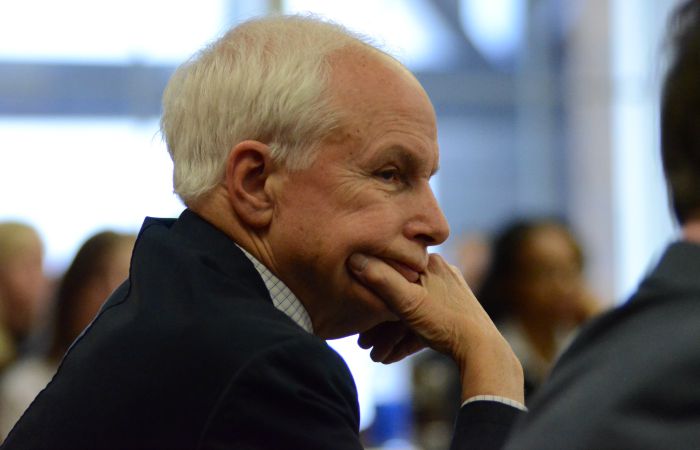The Challenge: Leaders are too busy to prioritize conversations with others.
The Science: Stress, busyness, and results orientation make leaders less effective.
The Solution: Mindfulness gives leaders the edge they need to succeed.
Leaders in organizations are often running full tilt from meeting to meeting, phone call to phone call, and personal conversation to personal conversation. In working with senior executives as an executive coach, I’ve observed how often conversations are hurried or disjointed because of the demands for results and speed. What often results is a lack of personal connection with individuals, true listening and a time for reflection.
The demands of leadership can produce what is known as “power stress,” a side effect of being in a position of power and influence that often leaves even the best leaders physically and emotionally drained. As a result, leaders can easily find themselves moving from an “approach” orientation to their work- emotionally open, engaged, and innovative- to an “avoidance” orientation that is characterized by aversion, irritability, aggression, fear, and close-mindedness.
Daniel Siegel, a neuroscientist, and author of The Mindful Brain: Reflection and Attunement in the Cultivation of Well-Being, contends that a corporate culture of cognitive shortcuts results in oversimplification of curtailed curiosity, reliance on ingrained beliefs and the development of perceptional blind spots. He argues that mindfulness practices enable individuals to jettison judgment and develop more flexible feelings toward what before may have been mental events they tried to avoid or towards which they had intense averse reactions.
David Rock, writing in Psychology Today argues that “busy people who run our companies and institutions …tend to spend little time thinking about themselves and other people, but a lot of time thinking about strategy, data, and systems. As a result the circuits involved in thinking about oneself and other people, the medial prefrontal cortex, tend to be not too well developed.” Rock says “Speaking to an executive about mindfulness can be a bit like speaking to a classical musician about jazz.”
When leaders are mindful, they are able in particular moments, to put the quality of their interactions with people ahead of task accomplishment. If they are to learn from others, they need to be present and be attuned to them rather than letting their thinking run ahead or focusing on particular strategies or actions we might want ourselves.
When leaders are caught up in trying to pursue their own analyses and strategies, they are likely to use questions in a purely tactical way. Asking questions mindfully to foster learning is a different approach.
Here are some ways in which leaders can be far more mindful in their conversations:
- Ensure they are fully present and focused on the current conversation with one another. This means having taken the time to clear the mind from the previous conversation or meeting and also not having their mind focused on the next meeting or conversation;
- Engage in a brief grounding 2-minute meditation prior to important conversations or meetings to facilitate calm and clear intentions;
- Practice “beginner’s mind”—suspending assumptions, fixed beliefs, and having the predetermined answer to issues— which enables them to see the situation or others’ perspectives brand new, without prejudgment;
- Practice empathetic listening to others. This involves not just hearing words but attuning to others’ emotions and feelings;
- Practice compassionate responses. If the conversation is a result of another who has made a mistake or failed in some way, rather than automatically reacting with criticism, judgment, or punishment, intentionally responding with compassion first;
- Stop needing to be right and the “authority” in all conversations. This requires the leader to be able to say “I don’t know,” show vulnerability, and turn to others for answers;
- Practice reflective listening. All too often in conversations and meetings, the leader is the one who talks the most and others listen. Mindful leaders do the opposite, listening and reflecting most of the time.
- In meetings, formally check in with how the other participants are feeling that day individually and one at a time to gauge the energy in the room.
In summary, mindful leaders have very different conversations, ones that not only facilitate better involvement by others but also deeper connections.




